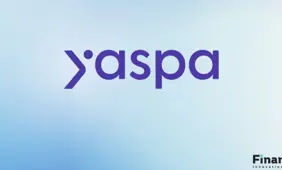Malta to Consider Indirect Tax on Gaming
Malta’s government says it will explore introducing an indirect tax on gaming as part of its 2026 budget review.

In presenting the 2026 budget, Malta’s finance ministry flagged a review of taxation across "value-adding" sectors that could see gaming moved into the scope of indirect, consumption-style taxes. At present, Maltese-licensed operators pay a direct gaming tax set at 5% of revenue derived from Malta-based players. Indirect levies would sit alongside existing consumption taxes such as value-added tax (VAT) or excise-style charges often described as 'sin taxes'.
The budget projects gaming tax receipts of roughly €67 million in 2026, up from an expected €65 million this year. Overall tax revenue for 2026 is forecast at €7.8 billion, driven mainly by income tax (€3.5 billion), social security contributions (€1.84 billion) and VAT (€1.69 billion). The government says it anticipates GDP growth of 3% next year, above the EU average.
Beyond the headline tax figures, the 2026 budget earmarks targeted support for digital industries. Allocations include €400,000 for the Malta iGaming Incubator, €4 million for esports initiatives and €900,000 to help local businesses develop and protect intellectual property. Measures aimed at family businesses and SMEs also feature, with changes such as an expanded Micro Invest Scheme allowance (rising to €65,000 in Malta and €85,000 in Gozo) and an investment tax credit that can cover 60% of qualifying capital spending over four years for machinery, IT and cybersecurity.
Finance Minister Clyde Caruana framed the package as a forward-looking plan to balance competitiveness and fiscal stability. "This budget continues Malta’s commitment to sustainable growth by investing in innovation, technology and skills. We are building an economy that rewards enterprise and creativity from digital gaming to biotechnology while ensuring fiscal stability and competitiveness across all sectors", he said.
Policy watchers note that an indirect tax could take several forms: a per-bet levy, a point-of-consumption VAT-like charge on player spend, or an excise applied to operator turnover. Each model carries different distributional and administrative implications and would likely prompt consultation with the Malta Gaming Authority (MGA), industry groups and consumer advocates before any change is enacted.
More Finance News
Player Protection Measures and Industry Reaction
The budget announcement comes as the Malta Gaming Authority rolls out new measures focused on safer gambling. Earlier this month, the MGA launched a free, anonymous online Self-Assessment Tool, developed with Maltese support organisations including Sedqa, Caritas Malta, the OASI Foundation and the Responsible Gaming Foundation. The questionnaire uses the nine-item Problem Gambling Severity Index to help players evaluate their behaviour and, where appropriate, direct them to support services.
"We welcome tools that make it easier for players to reflect on their choices and access help quickly", said a senior adviser at one of the participating charities. "Early self-assessment can reduce harm and signal when regulatory or clinical intervention is needed." The MGA has emphasised that the tool complements safer-gambling features already available to players, such as deposit limits and global self-exclusion services.
Industry representatives are likely to scrutinise any move toward indirect taxation. An independent iGaming analyst commented: "Shifting to a consumption-based tax model could raise revenue predictably, but it raises competitiveness concerns for Malta as a licensing hub. Operators may pass costs onto players or reconsider their operating mix if duty structures diverge sharply from other European markets".
No timetable or specific proposals for an indirect gaming tax were included in the budget documentation; the government said only that it will explore the option as part of broader tax policy work. Observers expect that any concrete measures would follow public consultation and technical briefings with the MGA, Treasury officials and sector stakeholders.
Key Milestones Ahead for Policy and Operators
For now, the key developments to watch are whether the government publishes a scoping paper or consultation, how the MGA factors any tax change into its licensing and compliance framework, and how operators respond during stakeholder engagement. With gaming revenues contributing modestly to the state’s overall receipts, policymakers will need to weigh fiscal aims against Malta’s position as an international iGaming centre and the sector’s broader social responsibilities.
RELATED TOPICS: Finance
Most Read
Mississippi Committee Advances Bill to Criminalize Online Sweepstakes Casinos
Jan 29, 2026Giuseppe Iadisernia Wins Seminole Hard Rock Lucky Hearts Poker Open Championship
Jan 28, 2026Must Read
 Interviews
Interviews
Exclusive Interview: Levon Nikoghosyan Shares AffPapa Winning Formula for Successful iGaming Events
Dec 03, 2025 Interviews
Interviews









Review this New Post
Leave a Comment
User Comments
Comments for Malta to Consider Indirect Tax on Gaming